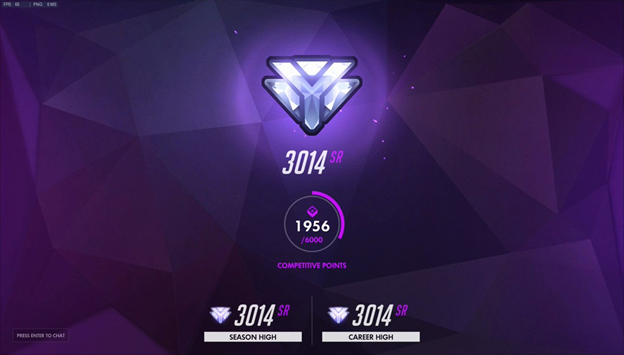How to Break an Overwatch Addiction

Overwatch is a futuristic, team-based first-person shooter that has been infuriatingly addictive since its release back in 2016. At the game’s peak, it was averaging around 5 million monthly players which have remained fairly consistent due to the games loyal fanbase. With word of its sequel coming out in 2022 it makes sense that we address how to break this addiction to salvage the lives of many gamers out there.
Content
Symptoms of Overwatch Addiction

In order to crack down on an overwatch addiction, we first need to be able to identify what it looks like. Every person is different and will exhibit different combinations of symptoms at varying degrees. The important thing to remember is, to be honest with yourself and what you are experiencing.
Behavioural Signs
Neglecting Important Responsibilities to Play Overwatch – In our daily lives, we all have important responsibilities to carry out. From work and school to parenting and caring for a loved one, we set these priorities because we value the person or what we are doing. The problem is when we begin to prioritise video games such as Overwatch over these major responsibilities, then we could be dealing with an addiction.
If you begin to notice a fall in your performance at school or low motivation and lack of productivity at work, addiction to Overwatch could be to blame. Prolonged and excessive use of video games messes with the reward centres of our brain. By conditioning us to need these feel-good chemicals we get from playing Overwatch it starts to take precedence over many important things in our lives.
Strained Personal Relationships – As video game addiction begins to set in, gamers grow further and further apart from their real-life friends and family. Their immersion into the game distracts them from remembering important dates like birthdays and anniversaries, not to mention ignoring attempts that loved ones make to reach out and socialise with them.
One reason for this is because the game starts to satisfy their need for social interaction. As we know Overwatch is a team game and is best enjoyed with friends. Gamers meet up online over social communication apps like Discord, TeamSpeak and Skype to play for hours climbing the ranks, interacting and having fun. It’s easy to see how these online relationships can be prioritised over face-to-face interactions.
If you have been neglecting interaction with friends, colleagues, family or your significant other because of your gaming habits then it might be time to seek help.
Physical Signs
Insomnia – Video games and all-nighters are an age-old combination. However, over time there have been scientifically proven links between excessive gaming and decreased sleep quality. For one, the sense of comradery when gaming with friends makes it easy to get carried away. Staying on for a couple more games than you should do easily leads to late nights where you don’t get enough sleep.
Another reason is the high levels of stimulation and adrenaline you get from playing. The game has quite a fast and intense pace which requires a lot of focus. The adrenaline rush we get from playing in combination with the high levels of concentration required can make it difficult for our bodies to unwind when it comes time to fall asleep.
Finally, blue light exposure from your monitor or television screens could be keeping you up. Blue light is the main wavelength of light radiated from your digital screens. When our eyes begin to absorb these it has been shown to interfere with the body’s natural sleep chemicals. Hence delaying our time to get to sleep by 3 hours.
If you have been suffering from sleep deprivation due to video games then this is a major red flag.
Neck & Back Pain – Ergonomics of gaming chairs and setups have come a long way, but they do have a tendency to break the bank. Those who don’t use proper posture or setups when playing for long hours often put themselves at risk of injuries to the neck and back. Furthermore, gaming can cause other strain injuries like carpal tunnel and tennis elbow which are sometimes more difficult to prevent. Strain injuries are usually caused by inflammation of the tendons and ligaments due to overuse.
The clue is in the name when it comes to these injuries as video games that require high action and repetitive wrist or thumb movements are mostly to blame. Fast-paced first-person shooters such as Overwatch if not played in moderation can be responsible for the development of these injuries. If strain injuries are not treated or rested, the damage can often lead to chronic pain and weakness in the affected limb.
If your gaming habits have put you at risk of developing strain injuries it is likely that you might be dealing with an addiction.
Psychological Signs
Obsessive Thinking About Overwatch – It’s one thing to be immersed in a video game when you’re playing it. But, if Overwatch is beginning to cloud your thoughts during the entire day whilst your focus should be elsewhere; then it’s safe to say we are probably dealing with an addiction to Overwatch.
Are your thoughts wandering to playing Overwatch while in class or at work? Do you find yourself daydreaming about Overwatch and zoning out of the conversation? Are you fantasizing about your next gaming session for most of the day? If you find that most of these are happening to you then Overwatch addiction is likely to blame. When someone is addicted to video games their mind typically becomes consumed by gaming in one way, shape or form. So much so that this is included in the World Health Organisation’s criteria for video game addiction.
Depression & Anxiety – Video game addiction has a complex relationship with depression and anxiety as it’s difficult to put it down as being a direct cause. But, clearly, excessive gaming has an impact on exacerbating symptoms of them.
Video games can increase feelings of anxiety and overwhelming emotions as many individuals use gaming as a means of escape. Video games have been shown to suppress negative emotions and distract the player from their negative circumstances. However, when they cannot play and run from their feelings of anxiety, they begin to have a more significant effect compared to someone who has learned to deal with them healthily.
With regards to depression. Video games are often used to feel a sense of achievement and accomplishment. However, when a person invests all of their time into accomplishing things within the realm of gaming but has nothing to show for it in the real world, their feelings of hopelessness and sadness can be amplified.
Other symptoms of video game addiction include:
- Neglecting health and hygiene
- Low energy and motivation
- Lack of interest in other hobbies
- Lying to conceal gaming habits
We do always recommend that you consult a healthcare professional when dealing with video game addiction. Many of the symptoms of video game addiction are shared with other mental health conditions which can in some cases be an underlying cause of dependency.
Overwatch Addiction Stories

Overwatch being addictive is a far more popular opinion than you’d imagine. In many forums and news outlets, people explain their addictive relationships with the game. Some ask for help and others share tips on how they overcame their own addiction. Gaming addiction often makes the person feel shameful and embarrassed about their predicament and prevents them from reaching out to get the help they deserve. We thought that we would share some of these stories to show you that you are not alone and how we can learn from others’ mistakes.
A Reddit user in the Overwatch Reddit thread went on to explain that his addiction to Overwatch would begin to dictate whether he was happy or sad for the day. Which as you can imagine is a very unhealthy and volatile means to determine how you feel during the day. The user claimed that the game was fun during the early stages when they had nothing to lose. However, as they began to climb the ranks they couldn’t stand losing for fear of getting demoted.
The only time they would feel happy is when they won. They explained that they had a similar experience with Call of Duty addiction but in this case, they didn’t have anything to lose so it made it easier to give it up. The main reason this person is addicted to the game is due to the “Loss aversion” which we will explain a little later in why Overwatch is so addictive. Many fellow Redditors gave their solutions to what this addicted gamer should do, which is great to see the community coming together.
On the official Overwatch Blizzard forum, another player gave their addiction story. They first began to notice their addiction when their previous passions were being put on hold to rank up. They became very irritable and distracted by anything Overwatch related when not playing. Things got serious when their partner noticed this behaviour and explained that it was harming their ambitions.
After a couple of failed attempts to quit later, they finally managed to commit to cutting down for a month and exclaimed that they feel great as many aspects of their life have improved and addictive symptoms began to subside. Hopefully, this story serves as an inspiration to those who would like to quit but are having trouble. Even though they relapsed, ultimately, they kept going and that is what made the difference.
Why Is Overwatch So Addictive?

Most popular video games these days share many things in common that make them addictive. Here we are going to go through the main addictive features of Overwatch that keep players hooked.
Loss Aversion
The concept with regards to Overwatch is largely rooted in the games ranked system. It causes a cognitive bias that was outlined by our first friend suffering from an Overwatch addiction. They explained that they didn’t want to lose or give up playing for fear of losing their rank. Despite not having fun anymore they continued to play because they believed that they would be losing something and in order to maintain it they continued to play.
This is a mode of thinking that has been ingrained in us over years of being part of a hunter-gatherer society. It makes us focus on not losing things that we attribute value to, back then it would have likely been food. But in this instance, our scarce feel-good resource is our rank that has taken countless hours and sacrifice to attain.
The problem is it can lead to possessive and obsessive reactions to things that are not tangible or beneficial to us. It often causes rationalisations towards gaming such as “I have such a good account, I can’t just stop playing or give it away!” “It took me forever to reach this rank, If I don’t keep playing I will lose it”. These rationalisations that we use to keep us playing are based on not losing, rather than actually making progress.
Even Ex CSGO pro and famous streamer Shroud quoted “Godammit, this game is something. I’m not having fun, but I want to play again. I feel like that is what this game does to you.” Despite his vast knowledge and experience with video games, he feels the effects of loss aversion in Overwatch.
One thing we explain to users who have a hard time due to loss aversion is that continuing to play the game is not adding value to their account or their lives. Addiction to Overwatch is a previous chapter of their lives now and this is about moving on. Think about it like this. We do not try to wear clothes that we have grown out of in an attempt to get our money’s worth. Likewise, we do not continue to play Overwatch when our rank is not of importance to our lives.
Sunk Cost Fallacy
There is one more cognitive bias that gamers seem to struggle with when it comes to Overwatch and that is the Sunk cost fallacy. This is a mode of thinking where the more we invest into an object or skill the harder it is to give it up. The investment is usually time or money and in the case of Overwatch, it is sometimes both.
When someone is addicted to Overwatch they invest huge amounts of time into the game which causes their brain to heavily value the game. Slowly but surely the concept of giving up the game makes the person feel like they are losing something of great value. Our brain begins to tell us, all of those hours, all of that money spent on “loot boxes” will have been for nothing. When we consider quitting it makes us feel emotional and disappointed which is generally the reason people end up relapsing.
The good news is that this rationalisation is very inaccurate and not always applicable in today’s world. We live in a time where we do things for leisure and not every skill we engage in is life or death. Our bodies are seeing this investment into video games as life or death because of how it makes us feel and how far it’s gotten us. But the truth of the matter is we will be perfectly fine without video games and for some of us much better off.
How to Overcome an Overwatch Addiction

Now, it’s time to take a look at some of the most effective treatments for video game addiction that will provide us with the best self help techniques to get over our addiction to Overwatch. With each of the methods that we mention we will provide a small activity or exercise to help give you a nudge in the right direction.
Cognitive Behavioural Therapy
You might have noticed the phrase CBT thrown around with regards to mental health and addiction, and it’s for good reason. CBT is the main method of treatment for video game addiction which focuses on all aspects of changing our thoughts, our relationship with them and how we view the world.
The reason being, that addictive behaviours start as addictive thoughts. The way we think and act are intimately linked. Hence changing our addictive thoughts will ultimately change the way we act and break our addictive behaviours.
Some might be sceptical about changing the way we think, but it is entirely possible and is scientifically proven through a principle called neuroplasticity. It was originally thought that once we mature our brains and thinking patterns were set in stone. However, we now know that this process is dynamic and constantly changing based on multiple factors like our environment, mental stimulation, relationships and so on.
The primary way we use CBT exercises are through meditations which is one of the best ways to engage with our thoughts. In this exercise, we are going to focus on challenging negative thoughts. The relevance of this is, during our journey of breaking our addiction we are going to have to cut down on video games. During this process, we will likely feel withdrawal symptoms which might get overwhelming and cause us to relapse. Therefore though practising these exercises to take power away from our negative and addictive thoughts we can stay on the right track towards recovery.
Challenging Addictive Thoughts: In this exercise we want you to divide a journal into three columns. In the first column, we are going to write down, when we feel the urge to play video games, what triggered us to play. It could be anything; a message from a friend on discord, your favourite twitch streamer going live or an ad on a youtube video. Anything that provokes you to play video games.
In the second column, we are going to write down the addictive thoughts that automatically come along with this craving. For example “I better get online quickly before my friends log off” or “I’m so close to my next loot box let me quickly get it.” Simply write them down in the second column.
Now, in the third column, we are going to write down our challenges to these addictive thoughts. These are positive alternatives and outlooks that we should try to act in line with. Things like “I’ve played a lot with my friends lately, maybe I should spend some time with my family” or “I’ve got important work to do right now, video games will always be there” By challenging these addictive thoughts we can slowly begin to change our outlook on them. Furthermore, writing these addictive thoughts down on paper takes a lot of the power away from them as we see them as simple phrases written down.
Try it out!
Acceptance & Commitment Therapy
This is known as ACT and falls under the umbrella of CBT. The purpose of ACT in overcoming video game addiction is to allow us to accept and move on from the mistakes we might have made. Video game addiction comes with a lot of guilt and shame about time and money wasted, relationships lost and opportunities missed. When these negative thoughts begin to creep in about the consequences of our addiction, these exercises will teach us to accept them and continue in a way congruent with our values.
This is an exercise to help determine our values and how we want to act beyond our gaming addiction. Our values aren’t simply something we want to achieve, but a moral code that we wish to follow because it is important to us. It is how we want to be seen, simply put.
It is likely that being addicted to Overwatch has skewed what you value in life so it is extremely beneficial to get back in touch with these.
Make a list of answers to the following reflective questions about yourself, and start to piece together the sort of values you would like to uphold:
Romantic Relationships – What sort of partner would you like to be? How would you describe your ideal relationship? What sort of behaviours do you aspire to show your significant other?
Job/Career – What career goals matter to you? What qualities would you like to demonstrate as a worker? What sort of professional relationships would you like to develop?
Leisure and Fun – What kind of activities outside of gaming interest you? What skills would you like to develop during these activities? What is exciting for you? What helps you to relax?
Friends and Family – What relationships are important to you? What aspects of a relationship are important to you? How would you like your friends and family to see you as a person?
It’s important to consider these values as we need something to hold us to our commitment to overcoming video game addiction.
Detox From Overwatch
This is one of the most important steps in the process of breaking an addiction to Overwatch. By detox, we mean to cut out all gaming and gaming related content for 90 days. The reason being, our brains need the chance to recover from the constant stimulation that video games have upheld. Also, this time away from video games will give us some perspective on the pleasures outside of gaming. Many video game addicts cannot remember what life was like without video games. so, this gives them the opportunity to explore other areas of life that they may have been neglecting during the height of their addiction.
Taking a detox from gaming will be difficult and you will be met with withdrawal symptoms. However, we do outline what to expect from a video game detox in our article on gaming addiction recovery.
During your detox stay consistent with your CBT and ACT practices as these will help to reduce addictive symptoms. After the 90 day period, you will notice an increase across many different areas of your life such as work/school, hobbies, relationships and general mood. Those who have completed the detox often refrain from playing video games again as they do not want to risk destroying what they have built. However, it is still possible to play in moderation if their relationship and motivations towards gaming have changed.
If you want to know more about video game addiction or need help cutting down, The Mindful Gamer is always here to help.








